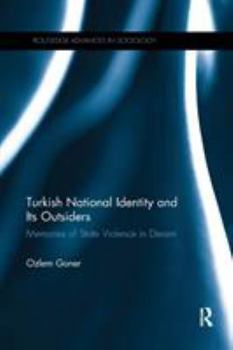Turkish National Identity and Its Outsiders: Memories of State Violence in Dersim
(Part of the Routledge Advances in Sociology Series)
This book examines the ways in which states and nations are constructed and legitimated through defining and managing outsiders. Focusing on Turkey and the municipality of Dersim - a region that has historically combined different outsider identities, including Armenian, Kurdish, and Alevi identities - the author explores the remembering, transformation and mobilisation of everyday relations of power and the manner in which relationships with the state shape both outsider identities and the conception of the nation itself.
Together with a discussion of the recent decade in which the history, identity, and nature of Dersim have been central to various social and political organisations, the author concentrates on three defining periods of state-outsider relationships - the massacre and the following displacements in Dersim known as '1938'; the growth of capitalism in Turkey and the leftist movements in Dersim between World War II and the coup d' tat of 1980; and the rise of the PKK and the 'state of exception' in Dersim in the 1990s - to show how outsiders came to be defined as 'exceptions to the law' and how they were managed in different periods.
Drawing on archival methods, field research, in-depth and multiple-session interviews and focus groups with three consecutive generations, this book offers a historical understanding of relationships of power and struggle as they are actualised and challenged at particular localities and shaped through the making of outsiderness. As such, it will be of interest to scholars of sociology, anthropology and political science, as well as historians.





